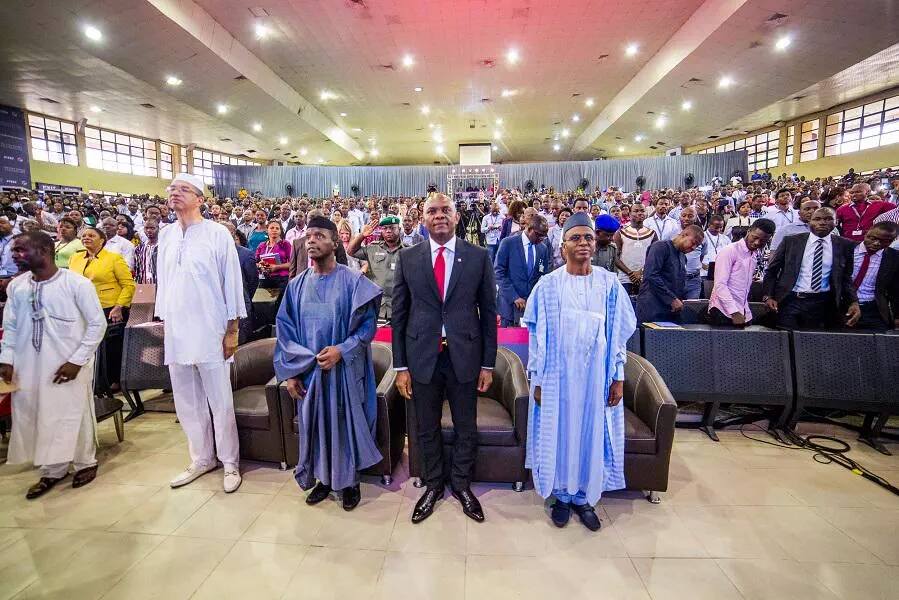 THE Kisutu Resident Magistrate’s Court in Dar es Salaam ordered the leader of Congo-based Ugandan Islamist rebel group Allied Democratic Forces (ADF), Jamil Mukulu, to be extradited to his home country to face trial for several murder charges.
THE Kisutu Resident Magistrate’s Court in Dar es Salaam ordered the leader of Congo-based Ugandan Islamist rebel group Allied Democratic Forces (ADF), Jamil Mukulu, to be extradited to his home country to face trial for several murder charges.
Principal Resident Magistrate Cyprian Mkeha reached such a decision after granting an application for extradition filed by Tanzania’s Attorney General (AG) on behalf of the government of Uganda against Mukulu, who is accused of commanding a spate of brutal attacks against seven people.
“I hereby proceed to order the respondent (Mukulu) to be returned to the Republic of Uganda to stand trial of offences which summons is sought,” the magistrate declared.
Mukulu, who founded the group to topple the Ugandan government in the 1990s, is alleged to have directed the killings of seven people, including police officers, religious leaders between May 2014 and February 2015, in the Districts of Mayuge, Namanyongo and Bugiri.
Immediately after delivery of the ruling, the rebel leader, who is defended by Tanzanian advocate Martin Rwehumbiza, told the magistrate that he has not been satisfied by the decision and would appeal to the High Court to oppose the ruling in question.
He, therefore, requested to be supplied with typed copy of the ruling and proceeding so that he could facilitate the filing of the appeal.
The respondent further requested to remain at Ukonga Prison, pending determination of his appeal. The magistrate granted both requests.
In considering the extradition application argued by Principal State Attorney Edwin Kakolaki, the magistrate said that he had been satisfied that Mukulu is not required in the Republic of Uganda to be tried of offences of political nature.
“Having been satisfied that there is sufficient evidence to establish prima facie link, which would justify for committal of the respondent for trial and had the alleged offences committed in Tanzania, I hereby hold the arrest warrant earlier issued by the Chief Magistrate’s Court of Jinja endorsable,” he ruled.
During hearing of the matter, Mr Kakolaki, assisted by Principal State Attorney Prosper Mwangamila and Senior State Attorney Hamidu Mwanga, tendered some documents, including the warrant of arrest, letter of request by Ugandan AG, charge sheet and affidavit by the Ugandan police to support the application.
In resisting the application, Advocate Rwehumbiza had told the court that the same was made under wrong legal procedure as it was authenticated by the AG and not the Minister for Justice and Constitutional Affairs as required by law.
He had charged further that his client was the leader of an Islamic group of ADF, which is a critical movement, opposed to the current Ugandan government and was, thus, considered as a terrorist group. The counsel submitted, therefore, that Mukulu would face offences of political nature.
It is alleged that since the late 1990s, Mukulu and his fighters have swept across Uganda and eastern Congo, killing thousands of people, mainly civilians, aid officials say.
The ADF leader fled a Ugandan army offensive around 2000 and established rear bases in eastern DRC. Their presence has for years exacerbated the lawlessness in Congo in addition to giving Kampala a pretext for intervening there.
It is alleged that in 1998, ADF rebels massacred 80 students during an attack at a college in western Uganda. United Nations reports show that in November last year, ADF rebels allegedly killed more than 100 people in series of gruesome attacks in Eastern Congo.
It is alleged further that Mukulu was put on the UN sanctions list in 2011 for his role in the destabilisation of Congo.
Last year, it was reported that Tanzanian forces attacked ADF rebel camps near Congo’s gold trading town of Beni, shortly after defeating another rebel group, known as the M23 in a US-backed campaign to rid the mineral-rich region of dozens of rebel groups.
There are also reports claiming that a Congolese military court tried Mukulu in absentia and sentenced him to death in November 2014, after convicting him and three others for terrorism and murder in relation to a spate of attacks inside Congo.


